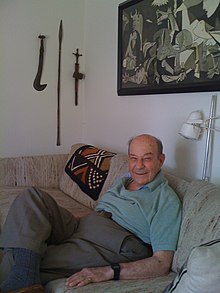Richard Fisch (1926–2011) was an American psychiatrist best known for his pioneering work in brief therapy.

Dick Fisch graduated from Colby College, studied for a year at Columbia University School of Anthropology, and then entered the New York Medical College where he graduated in 1954. Dr. Fisch completed a Psychiatric Residency at the Sheppard Pratt Health System, Brookdale University Hospital Medical Center in 1958. While at Sheppard Pratt, he was heavily influenced by Harry Stack Sullivan's Interpersonal Theory of Behavior and had his first indirect contact with Don D. Jackson who would later bring him to the Mental Research Institute (MRI) in Palo Alto, CA.[1]
MRI "became the go-to place for any therapist who wanted to be on the cutting edge of psychotherapy research and practice. Fostering a climate of almost untrammeled experimentalism, MRI started the first formal training program in family therapy, produced some of the seminal early papers and books in the field, and became a place where some of the field's leading figures - Paul Watzlawick, Richard Fisch, Jules Riskin, Virginia Satir, Salvador Minuchin, R.D. Laing, Irvin D. Yalom, Cloe Madanes - came to work or just hang out".[2]
While at MRI, he additionally worked with John Weakland, Jay Haley, Paul Watzlawick, Virginia Satir, and many other prominent figures in the development of family therapy, brief therapy, systems theory and communication theory.[3]
In 1965, in a memo to Don Jackson, dated September 15, 1965, Fisch proposed creation of a research project that would "provide imaginative, well planned, brief therapy and at the same time permit a more thorough study if the effectiveness of this approach.[4] With the backing of Don Jackson, MRI's Brief Therapy Center as founded by Fisch, John Weakland, Paul Watzlawick, and Art Bodin. The Brief Therapy Center was central to the emergence of Brief Therapy approaches that have radically changed the practice of psychotherapy.[1]